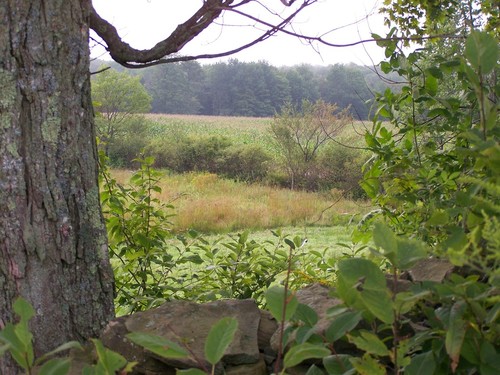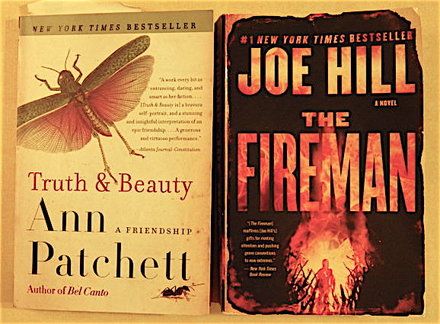|
A tall glass of iced lemonade beaded with condensation.
A pillow-lined nook on the porch overlooking open water or a garden. The warm breeze carrying the scent of seaweed, or pine, or fresh-cut grass clippings. And some books.
I had the enviable job for a while of reviewing new books for the erstwhile Tampa Tribune. I'd go into my editor's office with a big empty LL Bean tote and then stagger out like a bookwormy donkey. I'd review books that I liked and ditch the ones I didn't.
As a job, it didn't pay very well, but I did get to keep the books. These days, I don't gobble up piles of reading material. Even with the bounty of the public library easily within reach, good books seem thin on the ground. When I do find one, I wish I were still writing reviews. Word of mouth only goes so far. And hence, a couple of summer reading recommendations.
If you are a fan of Stephen King's apocalyptic masterpiece The Stand, let me humbly suggest Joe Hill's The Fireman.
The parallels –– each a brick-sized opus with a New England setting, a fatal plague devastating the country, a pregnant heroine –– are entertaining but not distracting. Both books take place in the near future and tackle deceptively complicated moral dilemmas –– as is the wont in apocalyptic fiction. The disruption of society in Stephen King's The Stand sets the stage for a showdown with capital-letter Evil in the form of Randall Flagg. In The Fireman, the enemy is less showy (not a Big Bad, as Buffy would say), which gives Hill's suspense an edge: what does victory look like when the evil is not separate? Hill's take on the calamity is not a super-flu but a fungal plague that sets its victims on fire. His descriptions are vivid, his pacing brisk (hold on!), and the characters reveal themselves with a nice, writerly economy.
The Fireman requires a chunk of time; and if you haven't budgeted some hours on the porch, you may have to forego sleep to finish the book.
But isn't that what you're looking for in a summer read?
It's not fiction at all but the memoir of the author's friendship with Lucy Grealy. Grealy, of course, wrote the Autobiography of a Face about her lifelong struggle with facial cancer, facial reconstructive surgery, and a longing to be more than her own appearance. Patchett is the award-winning novelist who wrote Bel Canto, The Year of Wonders, and Commonwealth.
2 Comments
Stephe
6/24/2017 06:53:56 pm
Love Ann Patchett -- Bel Canto is so good.
Reply
Amy
6/25/2017 03:36:11 pm
Thanks Stephe for stopping by!
Reply
Leave a Reply. |
About the Blog
A lot of ground gets covered on this blog -- from sailboat racing to book suggestions to plain old piffle. FollowTrying to keep track? Follow me on Facebook or Twitter or if you use an aggregator, click the RSS option below.
Old school? Sign up for the newsletter and I'll shoot you a short e-mail when there's something new.
Archives
June 2024
Categories
All
|


 RSS Feed
RSS Feed
